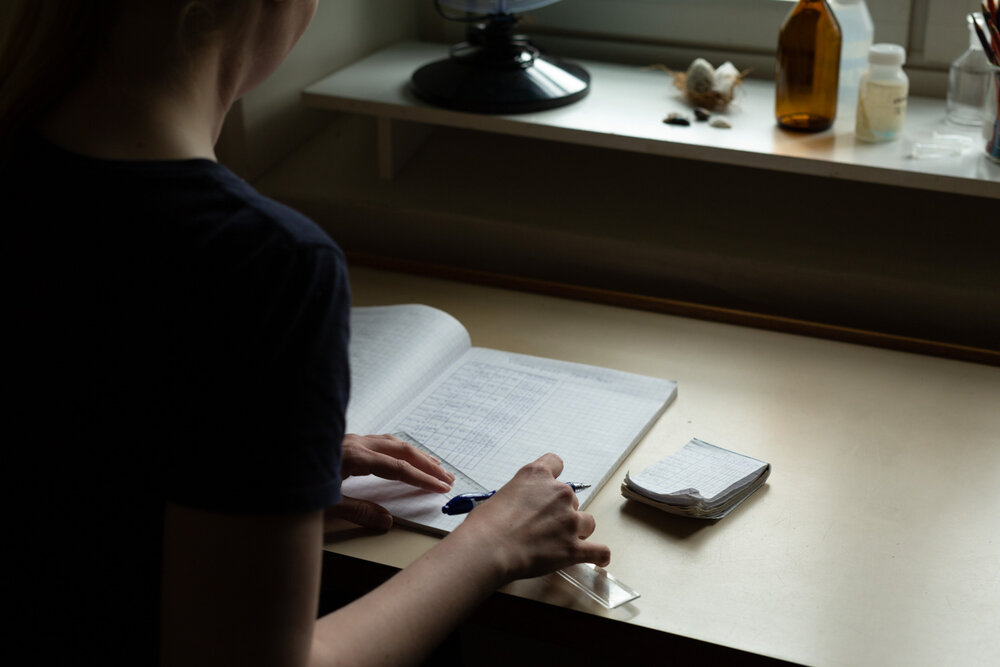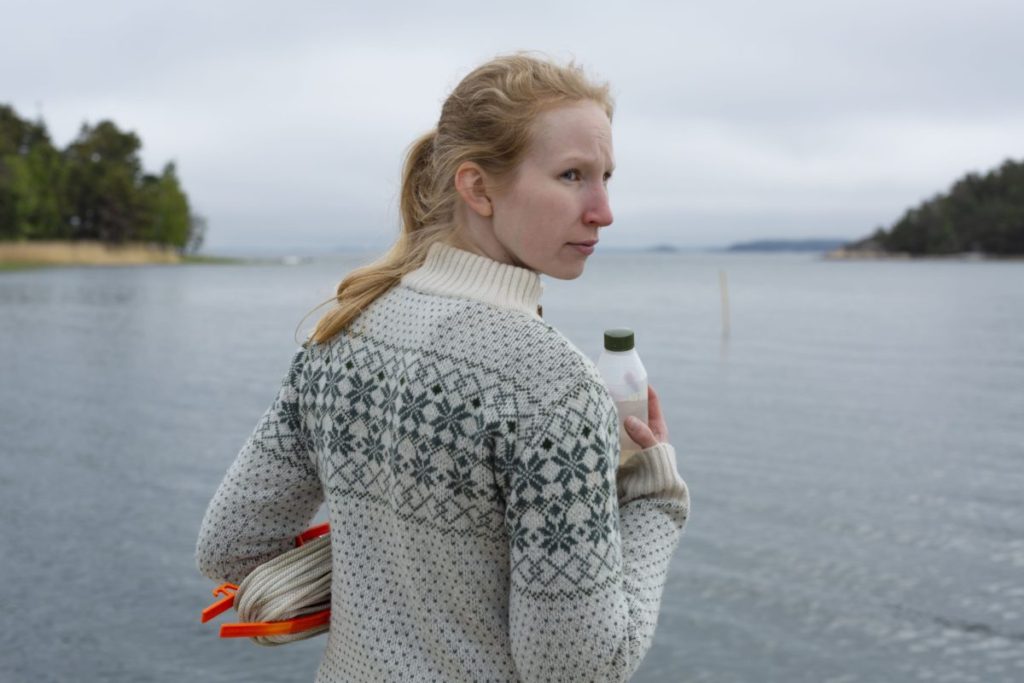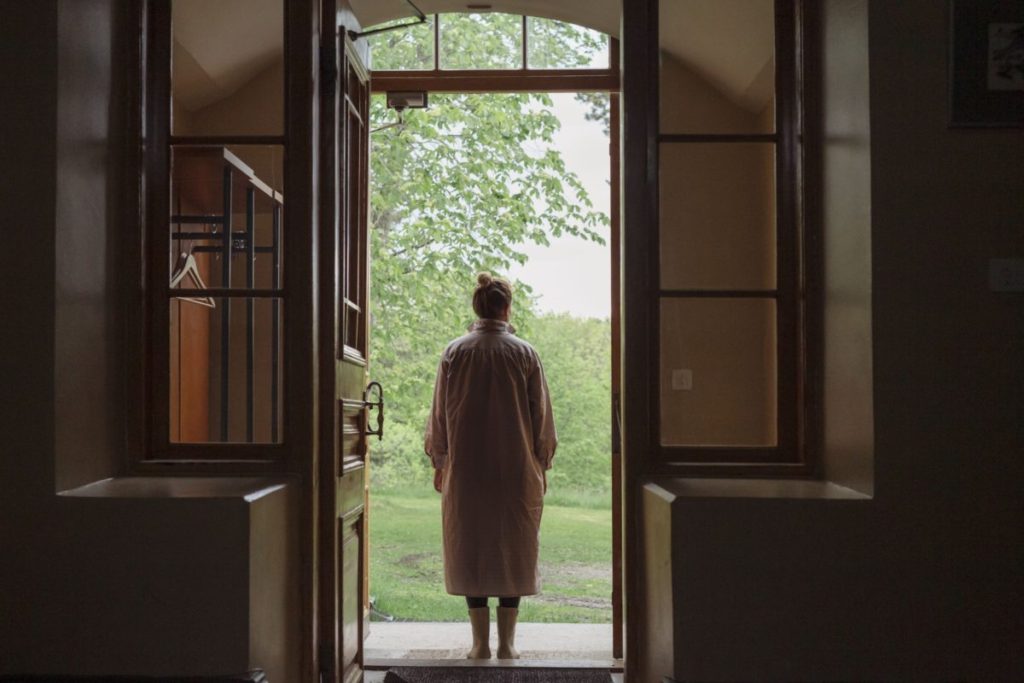Review: SJÄLÖ-Island of Souls (2020)

© Maija Savolainen 
© Maija Savolainen 
© Maija Savolainen
Part of a vast archipelago stretching out across the Baltic Sea from the south-west corner of Finland, Själö is a tiny island with a deep, dark history. Under Swedish imperial rule in the 17th and 18th centuries, it served as a leper colony for the city of Turku. Later it became a hospital for mentally ill women, many of whom were effectively imprisoned there for life under spurious definitions of sickness. Since 1964, its former asylum buildings have housed a biological research institute attached to the University of Turku.
Själö – also known as Seili in its alternative Finnish spelling – is the subject of Lotta Petronella’s lyrical film Island of Souls, which earned a Special Mention from the Nordic Jury at CPH:DOX festival last week. A Finnish documentary director with a fine art background, Petronella initially planned to make a short film about the island’s current handful of human inhabitants, a team of female scientists investigating the local population of bloodsucking tick parasites. But the ghosts of history inevitably began to haunt her imagination, expanding the project into a longer and richer meditation on memory, power and patriarchy. “Here the beauty and the grotesque occupy the same space,” Petronella explains in her press notes. “The film is a mystery, like a modern gothic story.”
Island of Souls is part visual poem, party history lesson and part melancholy memorial to the women whose life stories have been lost in the fog of time. Arriving on Själö across an icy sea, the director begins to draw subtle parallels between the detached, scientific manner in the current biological team catalogue ticks and the way in which human inmates were once monitored on the island.
Petronella approaches her multi-layered subject in an elliptical manner, switching fluidly between different moods, themes and time periods. Strikingly beautiful close-up shots of beetles, frogs, plants and microscopic creatures form a wondrous background chorus of fertile nature. Cameras glide through deserted rooms, empty corridors and ancient wooden churches where lepers once gathered to pray for deliverance. While contemporary scientists collect samples and peer into microscopes, ancient spirits seem to hover just outside every shot. Wind stirs the trees.
Meanwhile, Petronella digs into the hospital archives, examining its prison-like architecture, lingering on tragic case notes and unsettling illustrations of former patients. Periodically throughout the film, scratchy disembodied voices read extracts of letters written by asylum inmates, addressed to far-away family or long-lost lovers. Many of these desperate pleas for freedom, money, food or clothes were cruelly confiscated by medical staff and never sent. They now form an “invisible archive”, the director says, of “the forgotten, the hidden, the censored”.
Petronella is not the first artist to use Själö’s disturbing history as creative inspiration. Musicians and authors have previously been drawn to these stories, most recently the Finnish-Swedish novelist Johanna Holmström. Even so, Island of Souls is its own unique cinematic creation, blending conventional documentary with personal journey, audio-visual poem and exploration of changing attitudes towards mental illness. A stark, elegant, haunting score by Finnish experimental composer Lau Nau – aka Laura Naukkarinen – balances ambient mood painting with eerie sound design, adding to the film’s quietly bewitching power.
Director: Lotta Petronella
Screenwriter: Lotta Petronella, Seppo Parkkinen
Producers: Ilona Tolmunen, Ulla Simonen, Johanna Tarvainen
Director of Photography: Kerttu Hakkarainen
Editor: Matti Näränen
Sound: Janne Laine
Music: LAU NAU

















2024-03-04 @ 17:16
I really love the script. Is it possible to get a copy in English? My mom cones from that area of Finland. It made me feel such longing. I live in Iceland now. I think you should publish it as a book. I’m an editor. I would love to help!
2024-04-08 @ 20:13
I am a journalist who watches films at film festivals or in the cinema, and I can not provide anyone with “copies” even if I had the links because that would be quite illegal
2024-03-04 @ 17:17
I just saw, this has no connection to the author. Sigh!